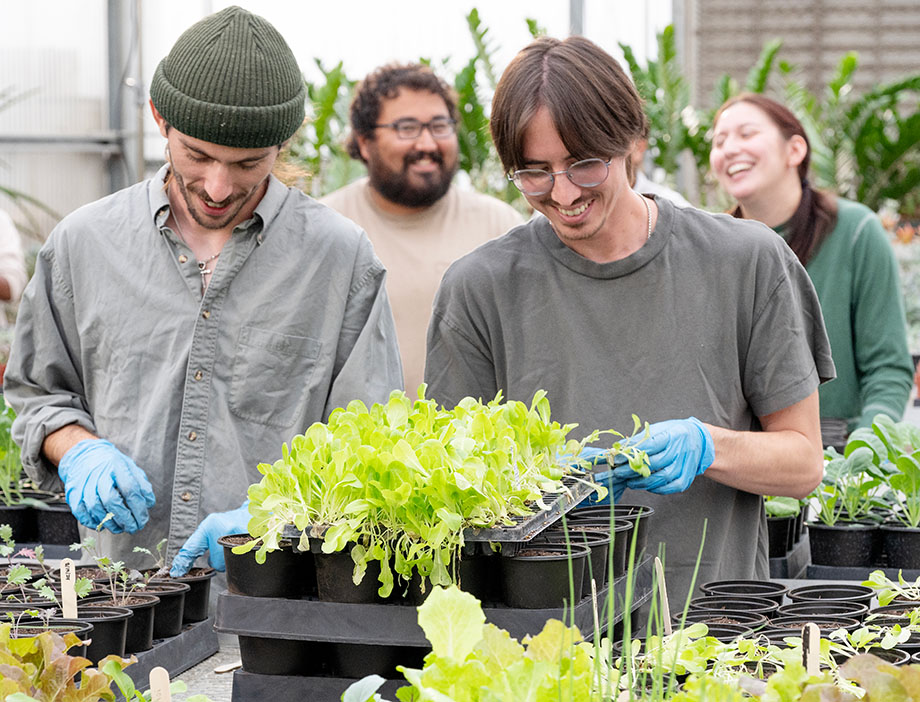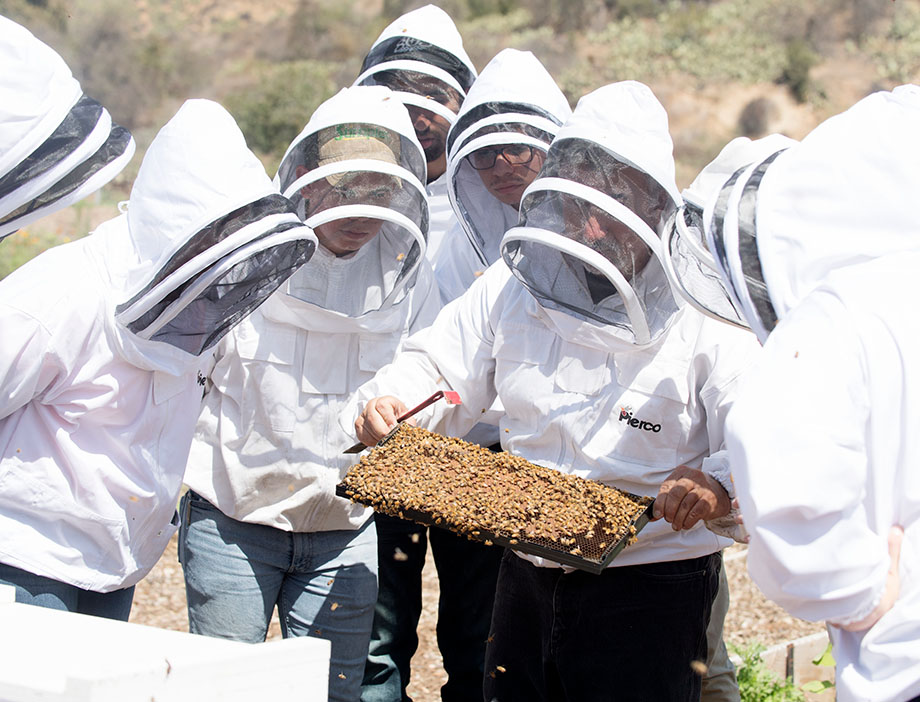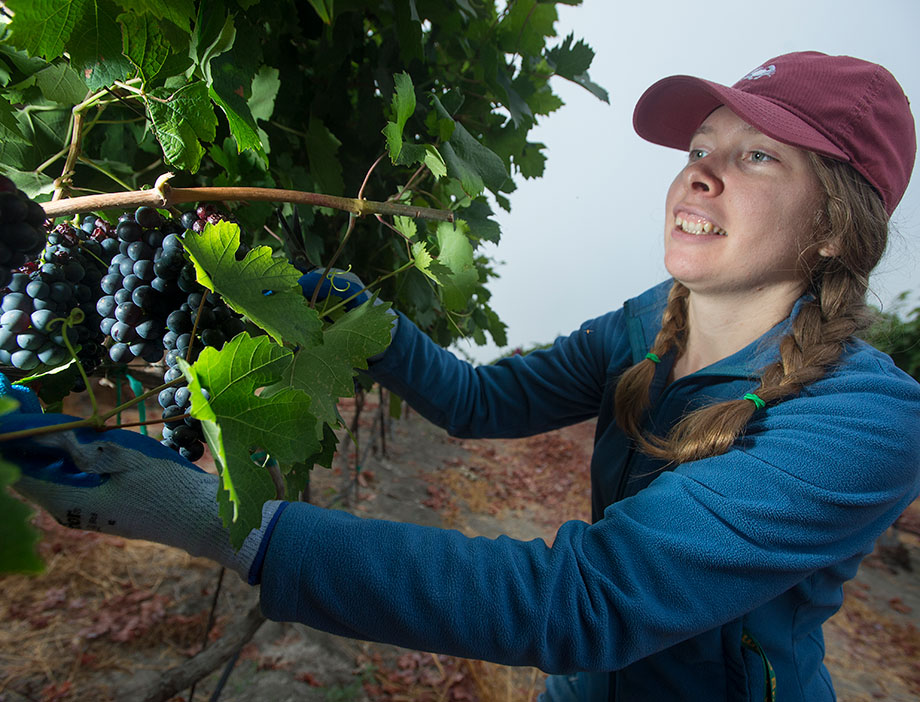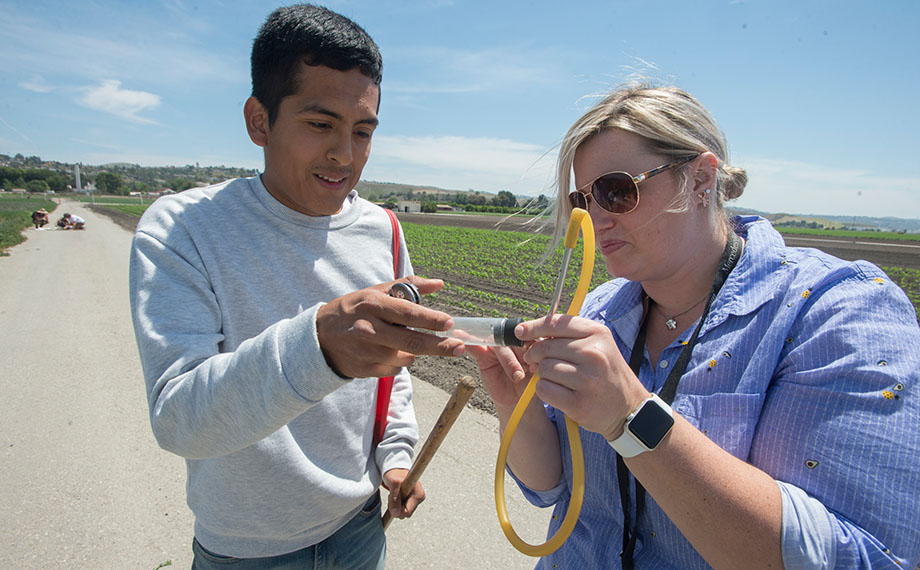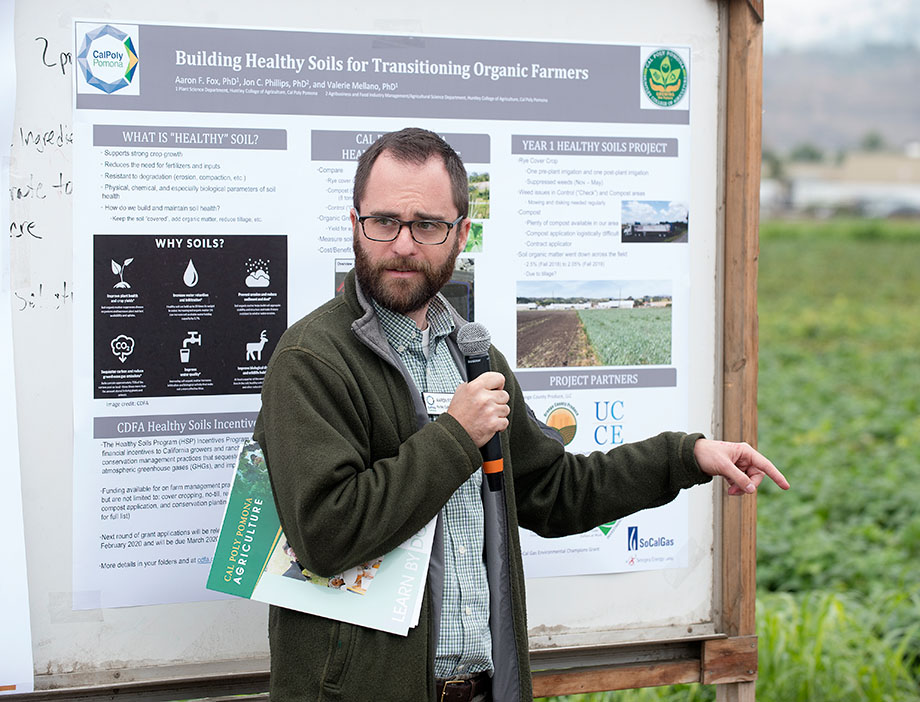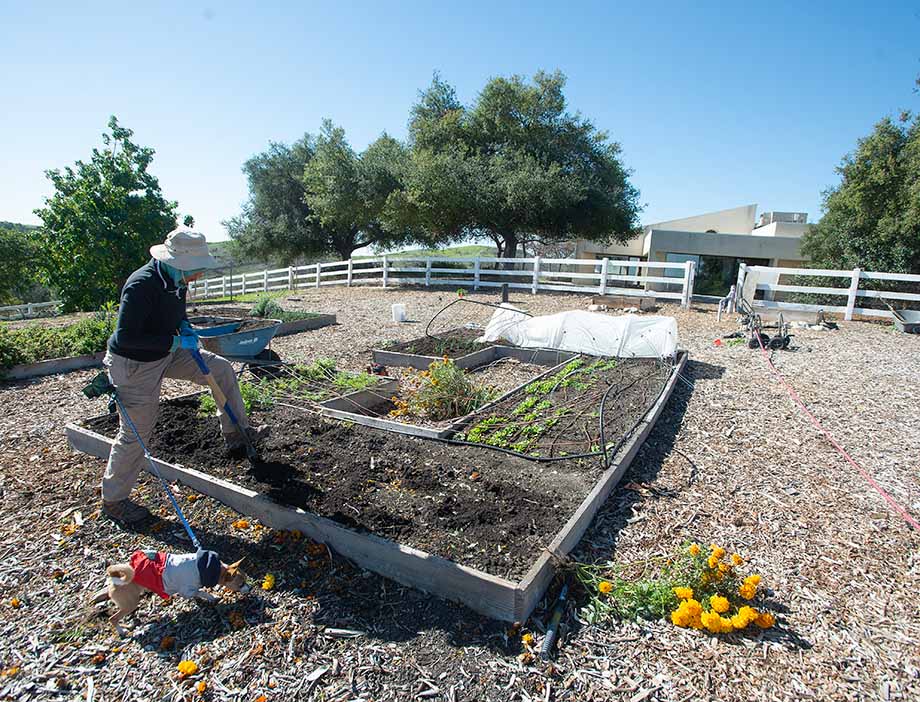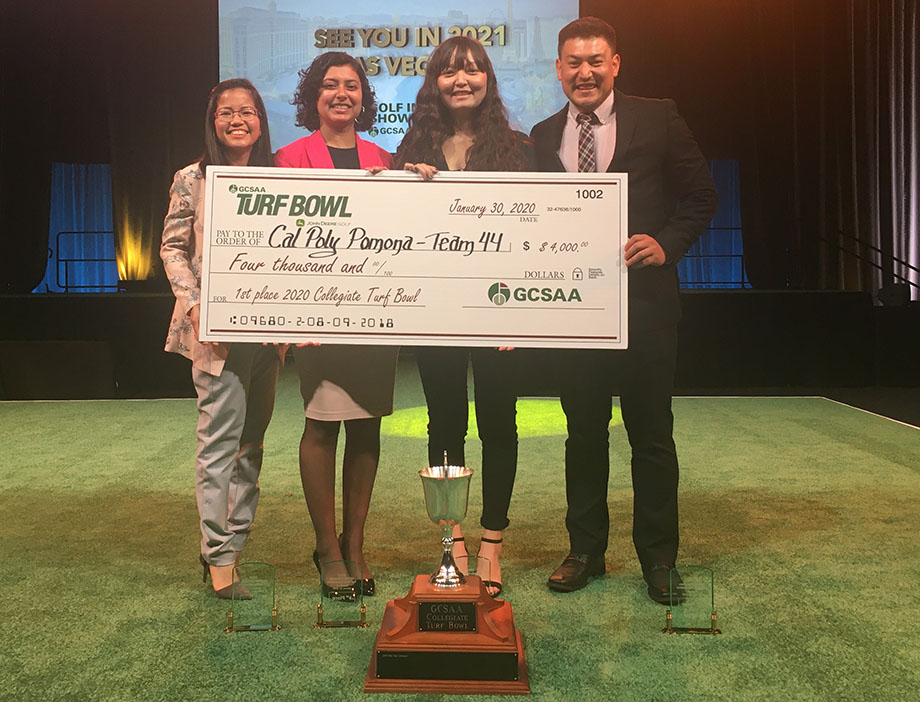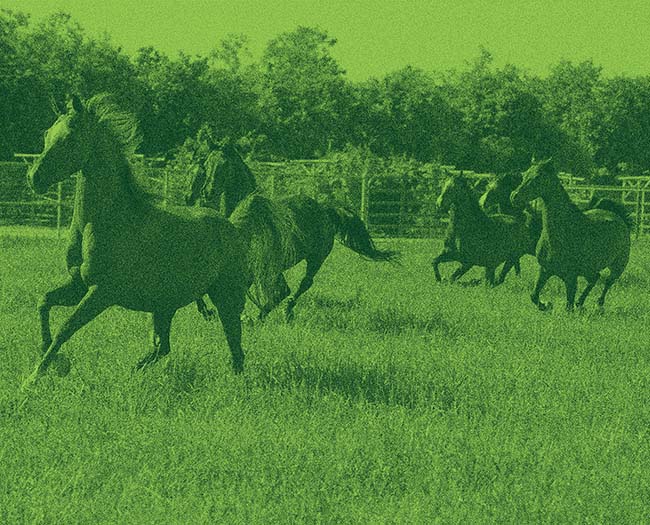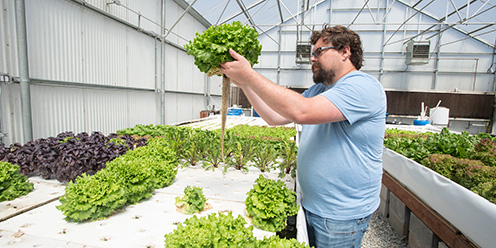
Department of Plant Science
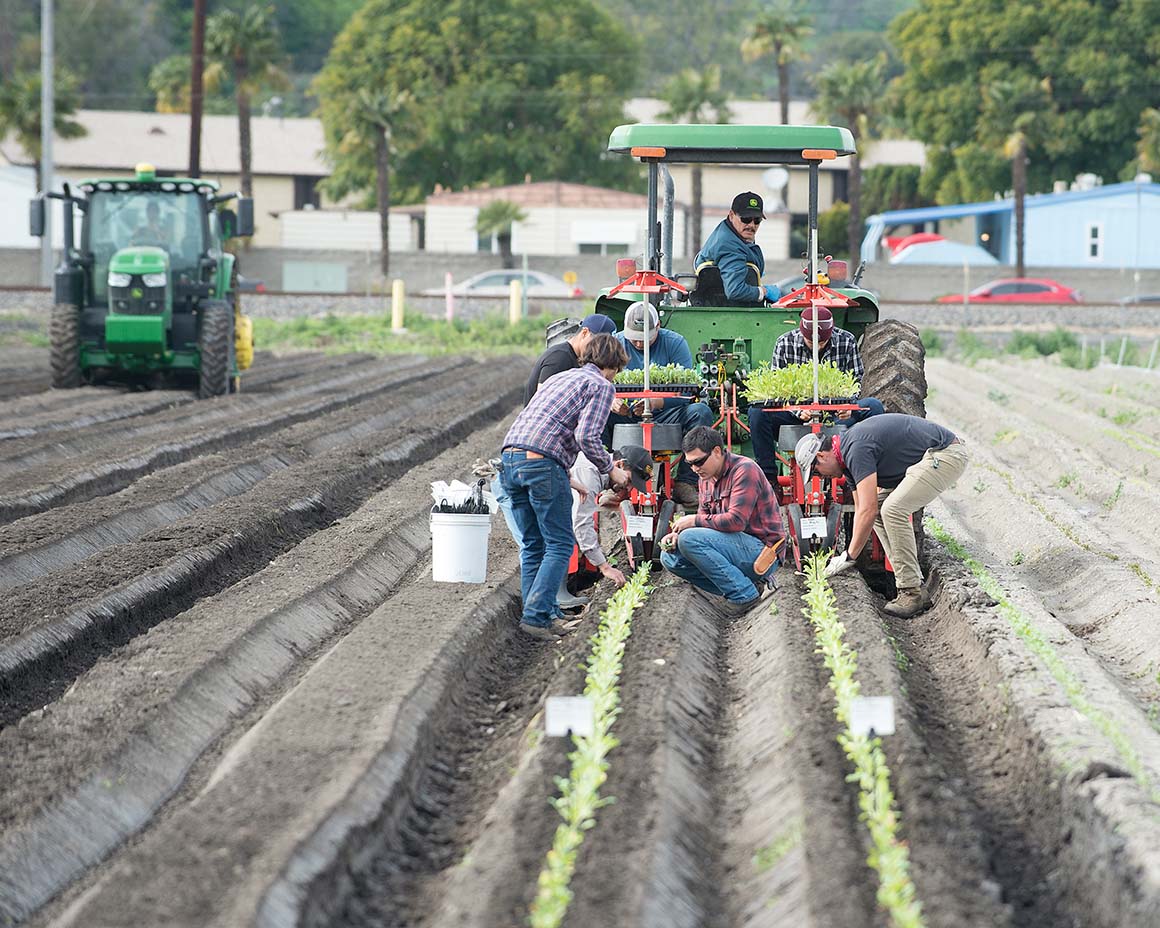
Become by Growing
Come grow with us. Discover the variety of career paths that are possible, from agronomy and horticulture to urban agriculture, arboriculture, and sports turf management. Get hands-on experience growing crops on the campus farm or in greenhouses. Explore hydroponic farming or beekeeping. The possibilities are endless.
Ready
The plant science degree meets all coursework requirements for the California pest control advisor license. Graduating students can take the exam immediately and earn their license.
The Polytechnic Experience
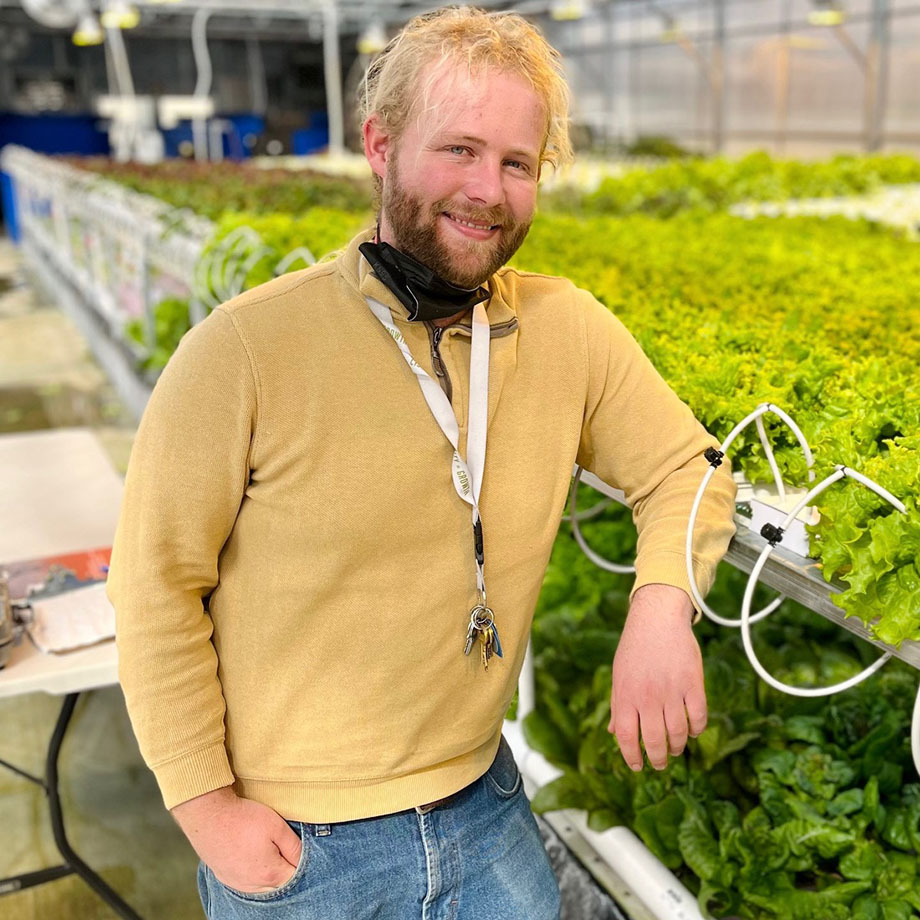
Alumni Success Stories
Aaron Thormodsen ('21, plant science)
Aaron is a hydroponic crop production specialist for WesleyLife.
